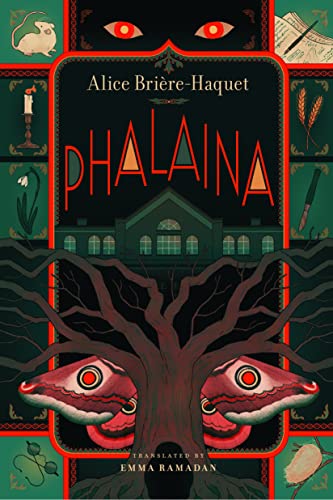Phalaina
Narrated by both human and animal, Phalaina tells the story of Homo sapiens and what has been lost in the quest to dominate the world. In 1881 London, Manon is an orphaned girl with red eyes who doesn’t speak and who has never fit in with the world around her. But wherever Manon goes, death seems to trail her. Little does she know the lengths some people will go to acquire and study her. She’s a new branch of humanity: a race possessing powers for healing and telepathy, gifts one scientist believes will bring him fame and fortune. However, he and his nefarious henchmen must catch her first.
The book is an examination of the world beyond the human senses, what we’ve gained and what we’ve lost. It’s a melancholy view of progress and its cost, not just to nature but to the essence of humanity. Chapters are short, often only a couple of pages, resulting in rapid scene and narrative changes. Interspersed between the chapters are faux letters from a professor to Charles Darwin examining the living world and humanity’s place in it. The narrative style is very ‘tell’ heavy, so it’s hard to empathize with the characters. Of note: there are gruesome and explicit mutilations and death, so I would suggest caution regarding the middle-grade classification. There’s also fat-shaming of one character whose kindness doesn’t seem to be mentioned as much as her weight. She’s referred to as fat poetess and fat loon. Even in a chapter introducing us to the character, it states: “She had the memory of an elephant. The hips and butt too…” Including such comments in a novel about the beauty of diversity is both distasteful and counterintuitive to the overall message.










